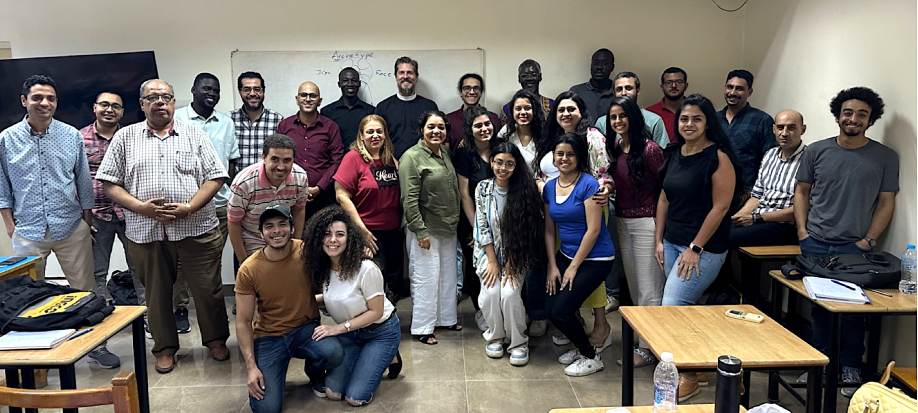From Egypt with Love: Arabic Christian Theology

We are wrapping up our first semester, and our second semester will soon start at the Alexandria School of Theology. As part of my class on the Trinity this year, I looked into Arabic Christian theology. This stuff isn’t well known by Western theologians, but I’ve had the pleasure of meeting some of the finest scholars on the topic here in Egypt. One of our parishioners, Joseph Cummings, teaches at Yale and Fuller, and he brings in American students to learn from teachers at Al Azhar University – the “Vatican” of Sunni Islam. His own work has focused on the articulation of the Trinity in Arabic, a language that did not originally have the most useful lexicon of words available for medieval Christians. So, they went about developing one that was faithful to the Greek Church Fathers and useful for communicating with Muslims. They were more successful with regards to the former than to the latter: the word they settled on for God’s one “essence” – jawhar - was not a term used by Muslims (who sometimes preferred dhat). And because the Arabic word for “person” – shahks - was inappropriate for theology, they imported a Syriac word – uqnum. So to communicate with Muslims, they needed another strategy.
In the early centuries of Islam, their theologians struggled to articulate how God could be one and yet have many attributes (sifat). One side seemingly argued that God did not really have attributes at all, while orthodox Sunnis settled on the somewhat paradoxical solution that God’s attributes were not other than God but were not exactly identical to God either. One of these attributes – God’s “speech” or “word” – for example, divided the two sides of the debate. The Sunni side argued that God’s word was an eternal sifat al-dhat (attribute of God’s essence), while the other side argued it was a sifat al-f’il (an attribute of action that God actualized only as a result of creation). In the context of this debate, Christians agreed with Sunnis that God’s Word was eternal, distinct from God, and one with God (see John 1). They also pointed out that both religions could agree that God eternally had Life (haya)– the attribute that is linguistically and theologically linked to the person of the Holy Spirit. That is to say that neither God’s attribute of speech nor life came into existence as a result of creation.
At times it has looked like the Arabic Christians were reducing the trinitarian persons to mere attributes, but this is not the case. Minimally, what they wanted to establish was that these attributes were eternal. Assuming that the attributes of speech and life are not other than God, Christians would say that they are also not identical to God because they are persons (Greek: hypostases; Arabic: uqnum). Cummings points out that in the theological tradition, there is the idea of “appropriations,” which says that while all of the divine attributes are shared by the three persons, some of them are especially known through one of the trinitarian persons. So for example, all three persons of the Trinity are “holy” and “spirit,” but we say that the third person of the Trinity has appropriated those attributes for himself.
So what then is a trinitarian person if it is not identical with the attribute appropriated? One prominent answer in the West is that a person-hypostasis-uqnum is a relationship. It would take a long explanation to get to the heart of this. But the Arabic Christians would point to this definition of personhood by arguing that the attribute of, say, speech or understanding implies an internal relation within God between his mind and his thoughts. This takes us up to the limits of philosophical reasoning since, as Muslims pointed out, there does not seem to be a reason why there are only three internally related attributes of God. In any case, I think these arguments are worth looking at considering the fact that Christians and Muslims are the two largest groups on earth. It is worth trying to communicate clearly.

